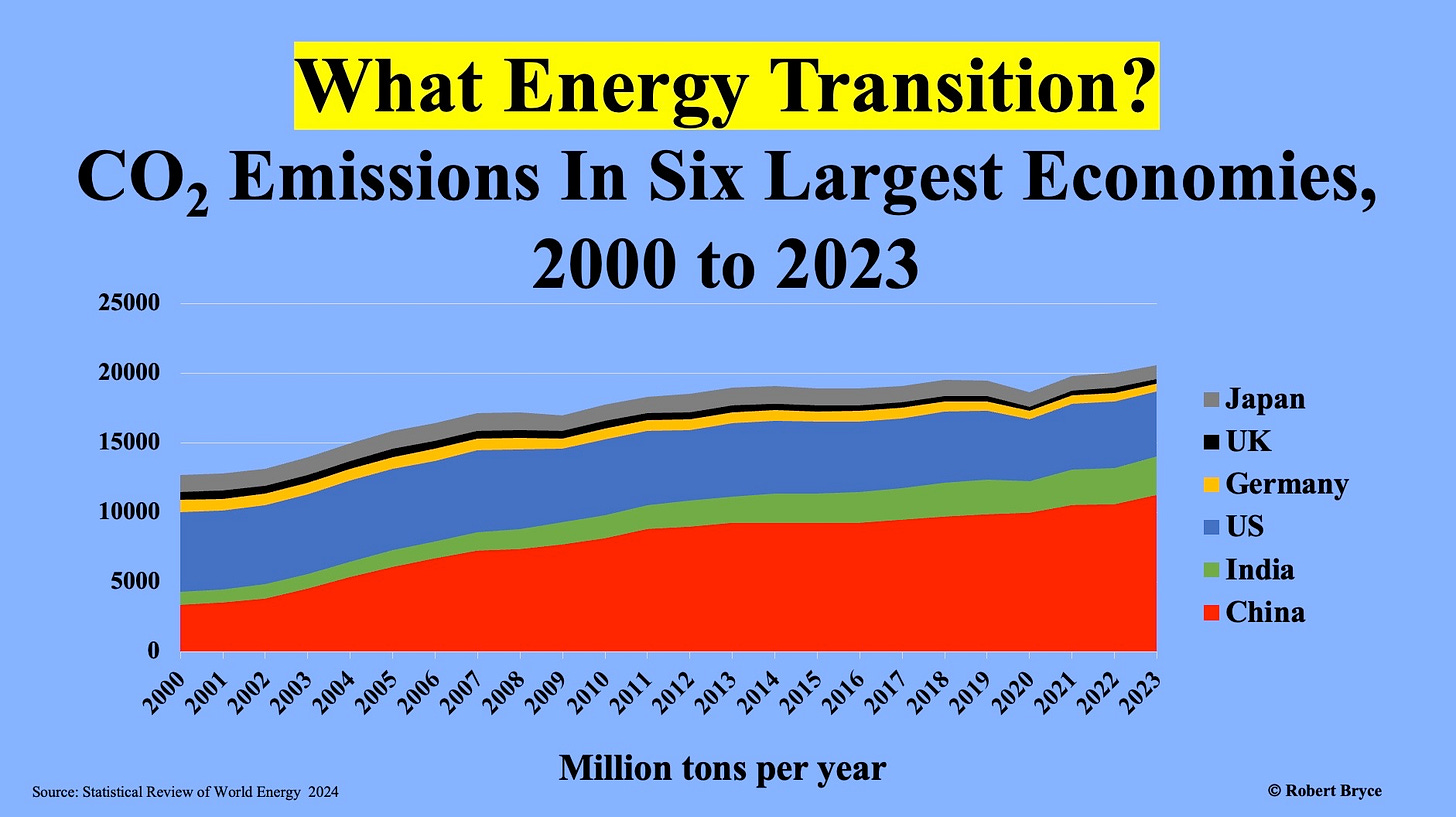The Iron Law Of Land Mines And Climate Policy
The Biden administration’s decision to send land mines to Ukraine proves that national interests always trump international agreements. The same applies to climate policy.

International agreements and treaties are the bedrock of modern civilization. Until they aren’t.
Two years ago, the Biden administration announced the US would be “joining the vast majority of countries around the world in committing to limit the use of anti-personnel land mines.” It said it would not “develop, produce, or acquire” the devices and would not use them except on the Korean Peninsula. It also declared it would not “export or transfer” the devices “except when necessary for activities related to mine detection or removal, and for the purpose of destruction.”
The announcement went on, saying it “represents a further step to advance the humanitarian aims of the Ottawa Convention, and to bring US practice in closer alignment with a global humanitarian movement that has had a demonstrated positive impact in reducing civilian casualties from” land mines.
On Wednesday, the Biden administration reversed course and said it would be sending M74 antipersonnel mines to Ukraine to help that country in its fight against Russia. The decision was immediately condemned by Human Rights Watch director Mary Wareham, who called it a “shocking and devastating development.” A total of 164 countries, including Ukraine, have signed the Mine Ban Treaty. The US is the only member of NATO that has not signed it. The decision by the US to allow Ukraine to deploy land mines — and the use of long-range missiles against targets inside Russia — is part of the Biden administration’s dangerous escalation of US involvement in the bloody war between the two countries. (For more on the decision to allow the use of the missiles, read Matt Taibbi’s excellent piece, “The Emperor Has No Brains.”)
Wednesday’s reversal on land mines occurred at the same time that thousands of government officials, journalists, NGOs, and activists are in Baku, Azerbaijan, for the UN’s COP29 climate change confab. As noted by one climate-focused journalist “Leaders from nearly 200 countries have come together...to strategize how to preserve a livable climate.”
But COP29 — which ends today — will conclude like all of the previous COP meetings.1 That is, with no binding agreement to cut emissions.
The lack of substantive action at Baku provides yet more proof of Roger Pielke’s Iron Law of Climate, which says when forced to choose between economic growth and action on climate change, policymakers will always choose economic growth. Put another way, policymakers always choose what’s best for their country, the rest of the world be damned. The same applies to warfare and national security interests. Call it the Iron Law of Land Mines.
Ukraine signed the Mine Ban Treaty, but now it needs land mines to halt the advance of Russian troops. Thus, the Mine Ban Treaty is forgotten. The Biden administration was determined to advance “the humanitarian aims of the Ottawa Convention” — until it wasn’t.
The Ottawa Convention and the Kyoto Protocol have similar histories. Both were launched in 1997 with great fanfare about international cooperation and the need to deal with pressing global challenges. And both have been largely ignored over the past three decades as the world’s countries have pursued their national interests. Earlier this year, an analyst at CNA, a Washington-based security think tank, summed up the situation in a report titled “25 Years Later, the Work of the Mine Ban Treaty Is Unfinished.”
The same is true of the Kyoto Protocol, the Paris Agreement, and all the other climate accords. The Kyoto Protocol requires industrialized countries and its 192 parties “to limit and reduce greenhouse gases.” As seen above, despite 29 COP — 29! —meetings, it’s clear that the CO2 emissions from China and India are swamping any reductions being made by the US and other major economies. Of course, China, the world’s biggest emitter of CO2 has been making lots of politically correct noises about climate change. In its Nationally Determined Contribution, the document submitted to the UN Framework Convention on Climate Change, it said, “China attaches high importance to addressing climate change.” It also claimed it would “strictly limit the increase in coal consumption.”
Except it hasn’t.
According to Global Energy Monitor, China is building more than 173,000 megawatts of new coal-fired capacity. For reference, the US currently has about 181,000 megawatts of coal-fired capacity. Thus, the capacity of new coal plants under construction in China is equal to that of the entire US coal fleet, and remember, the US coal fleet is shrinking. Given these numbers, it’s hardly surprising that China’s coal use will increase by about 3% this year. Furthermore, as seen above, China is building nearly six times more coal-fired capacity than nuclear capacity.
The hard reality is that climate change policy doesn’t have much traction in international affairs and its importance is declining amid concerns about inflation, all-out war with Russia, trade, and immigration. Incoming president Donald Trump has made it clear he will quit the 2015 Paris climate agreement (again). Argentina’s conservative president, Javier Milei, pulled his country’s delegation from the meeting in Baku during the first week of the meeting and said he’s also considering quitting the Paris deal.
Need more evidence that the COP meetings are increasingly irrelevant? Here’s a list of world leaders who couldn’t find time in their schedules to fly to Baku:
Japanese Prime Minister Shigeru Ishiba, Chinese President Xi Jinping, Indian Prime Minister Narendra Modi, Brazilian President Luiz Inácio Lula da Silva, German Chancellor Olaf Scholz, US President Joe Biden, Dutch Prime Minister Dick Schoof, and French Prime Minister Emmanuel Macron.
The shortage of top-level attendees led one climate reporter to note that their “lack of attendance is concerning given the fact that every country is supposed to submit goals to cut their polluting emissions before next year’s COP30 in Brazil.”
Right.
Next year’s COP in Belém will — count on it — be just as productive as this year’s meeting in Baku. In the immortal words of former New York Jets linebacker Bart Scott, “Can’t Wait!”
Before you go:
Please do me a favor by clicking that ♡ button. And, while you’re at it, please share and subscribe.
Here’s the entire COP list: Baku, Dubai, Sharm El Sheikh, Glasgow, Madrid, Katowice, Bonn, Marrakech, Paris, Lima, Warsaw, Doha, Durban, Cancún, Copenhagen, Poznan, Bali, Nairobi, Montreal, Buenos Aires, Milan, New Delhi, Marrakech, The Hague, Bonn, Buenos Aires, Kyoto, Geneva, Berlin.







Thanks for this… it puts into perspective what many of us have been saying all along, that NetZero is unnecessary, technologically unattainable, economically unviable and extremely foolish. And especially as the “rest” of the global economies continue to do nothing anyway. It fits with the notion of focused adaption for “high risk areas” and will allow us to get on with prosperity using the power of Fossil fuels.
More at …. https://nigelsouthway.substack.com/p/no-netzero
To be fair, Biden forgot he was against mines before he was for them.